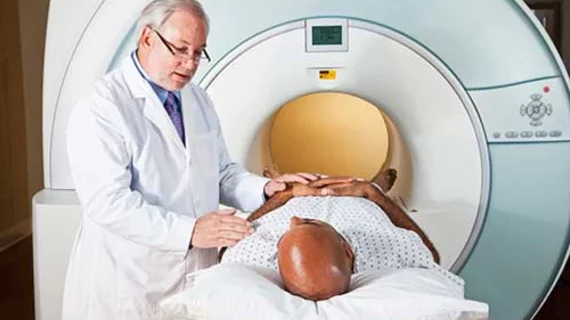Medical hypnosis a calming alternative to anesthesia for claustrophobic MRI patients
Medical hypnosis is a valid alternative to conscious sedation in patients unable to undergo MRI exams due to claustrophobia, according to new research published Friday.
In fact, exams performed under meditation guided by a doctor board-certified in internal medicine and medical hypnotherapy were just as good compared to those using relaxation drugs or spontaneous breathing general anesthesia.
Up to 15% of patients with claustrophobia will require sedation to complete their scan, authors explained in Insights into Imaging. Hypnosis has no side effects and allows patients to drive back home safely as opposed to pharmacological methods such as intranasal benzodiazepine.
“Medical hypnosis can be an interesting non-pharmacologic option to overcome MR-related claustrophobia, at least in selected patients that are willing to take an active part in controlling claustrophobia and/or are not willing to undergo pharmacological sedation,” Stefania Rizzo, with the University of Lugano in Switzerland, and colleagues wrote June 25.
The study included 80 patients split evenly into two groups: a control arm that received pharmacological sedation prior to their exam and patients who underwent hypnosis. For the latter group, a hypnotherapist guided meditation outside the MRI room 30 minutes before the scan.
Each patient completed their exam and two radiologists rated image quality on a scale of 0 (poor) to 4 (very good). Readers scored 66% of MRIs as either a 3 or 5, with only 5% rated below a 2.
Rizzo and colleagues reported no significant difference in image quality between the two groups.
The study was limited by its small patient pool and retrospective nature, but the authors maintained this technique has many advantages so long as it's performed by a professional.
“In experienced hands, medical hypnosis is a promising and valid alternative to spontaneous breathing general anesthesia in patients unable to undergo MR due to claustrophobia, if they prefer non-pharmacologic sedation and if they are able and willing to cooperate with the hypnotherapist,” Rizzo and co-authors concluded.
You can read the entire study here.

